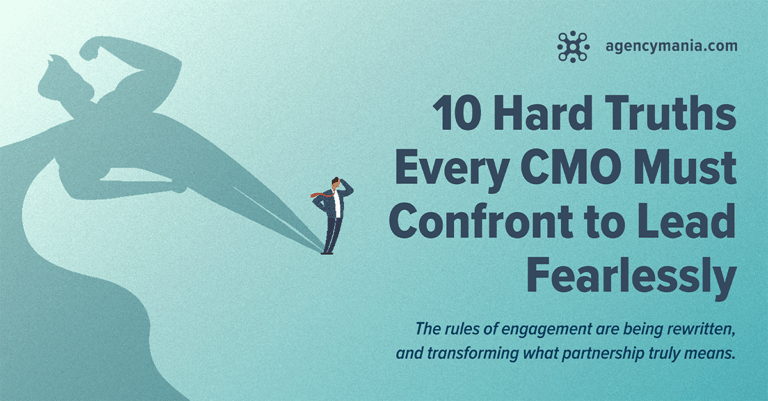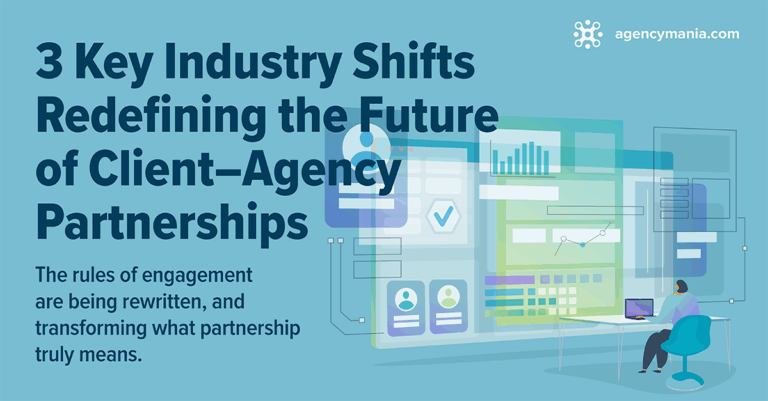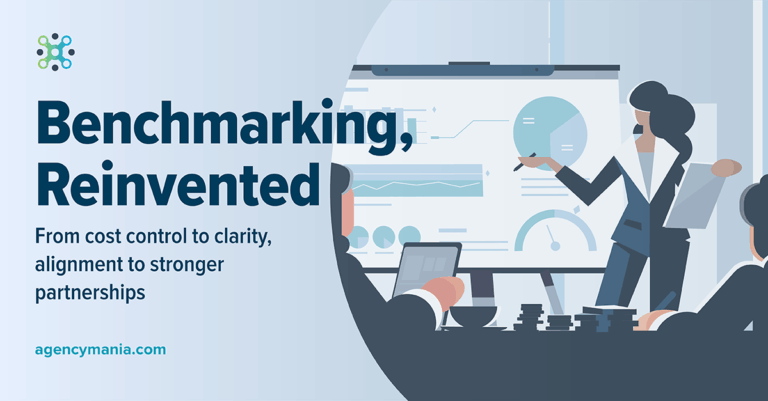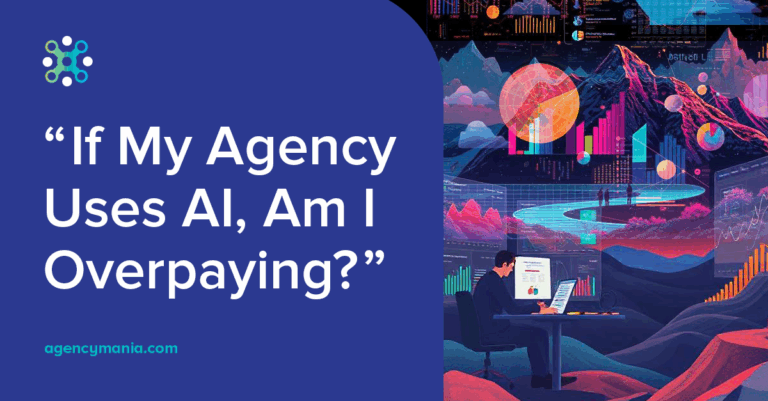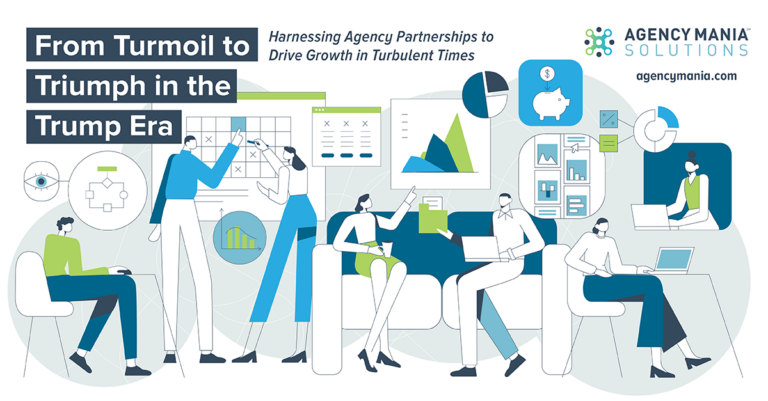20 Proven Ways to Drive Your Agency Crazy
In “Love Is Dead,” I highlighted proven best practices that set apart highly successful relationships from failed ones, based on the hundreds of relationship and performance evaluations we conducted. Similarly, a number of client behaviors guarantee you will fail your agency every time. Those who believe that common sense is not so common anymore are in for a real treat. American humorist, writer, teacher, television host and journalist Sam Levenson said so brilliantly: “You must learn from the mistakes of others. You can’t possibly live long enough to make them all yourself.” Find out what so many have learned the hard way: 20 demonstrated ways brand advertisers set up their agencies for failure, drive them insane and in the process, sabotage their own marketing efforts, GUARANTEED.
#1: They expect agencies to know their business as well as they do
“Why should I take the time to educate them on my business?” Sure, agencies would benefit from having some understanding of the category or prior relevant experience before working on your business. But they will never know your business as intimately as you do, nor should they. Give them time and opportunities to learn your business but maintain this as your area of expertise.
#2: They keep information to themselves
“I am busy enough. Do they really need more information?” All clients are struggling to keep up with the workload and demands placed on them. So, naturally, taking the time to prepare, organize and share information with their agencies might not be high on their priority list. However, agencies cannot operate effectively without being well informed throughout the course of a project about the business context, marketing priorities or creative mandatories. Help them help you by providing timely and usable information.
#3: They change their mind frequently for less than obvious reasons
“We just need to go another route. It’s probably for the best.” Change is the new constant. We all know that. That means changing your mind occasionally is not only necessary, it’s vital. But changing your mind frequently for no apparent reason leads to wasteful efforts and excessive agency fees. At the very least, make sure agencies are aware of the rationale behind the change of strategy so they too can benefit from it.
#4: They ask for strategic work to be rushed
“I need it yesterday and it’s got to be your best thinking!” Asking for strategic work to be rushed is like asking to prepare a gourmet cassoulet in two minutes. It’s a recipe for disaster. Agencies need adequate time to think strategically to make sound, well-informed recommendations. When they don’t, agencies cut corners and ultimately this contributes to failed execution, reconcepting or suboptimal work. Don’t rush important work.
#5: They expect agencies to write the brief themselves
“I am way too busy to write it. Can you quickly put it together so we have a paper trail?” Much gets lost in translation and the brief is often weak. The results speak for themselves. Garbage in, garbage out. However, if you want great work from your agencies, set the example, take ownership of the brief and spend the time to accurately capture the objectives of the assignment by providing actionable information.
#6: They pretend to be the final decision makers (but are not!)
“It’s my call … well, of course, unless I get overruled.” Too often, the work is being challenged late in the process because the final decision makers are not involved early enough. Clients might suggest that they have final authority, only to realize that they are unwilling or unable to sign off on the final product. Agencies go back to the drawing board and the project is delayed, and they are required to bill additional time to complete the work. Insist on getting the real stakeholders and decision makers involved early on.
#7: They jump into the work without clarity of goals or preparation
“Let’s get the team started. I don’t have all the details but we can figure out the objectives as we go.” This is a common pain point: clients ask agencies to jump in immediately. No brief has been submitted. The client has half of the information needed: objectives are vague, timing is still TBD, success metrics are unclear. A PO may not even be open. It means that the work has started and it’s out of compliance with corporate policy. Clients too often use the brief process to clarify their strategy, instead of stating it. Prepare accordingly.
#8: They do not provide timely or actionable feedback
“We should probably have said something earlier. Oh well, now you know.” Who likes to be surprised? No one, really. When we fail to provide feedback, or the feedback is too late for someone to learn from it and take action, we do ourselves and others a disfavor. How many times are agencies learning that they will miss their bonus or the account is in review without getting a chance to address the issues? The feedback is not always actionable either. There is no better way to sabotage a relationship. Don’t keep things to yourself. Provide feedback consistently so they can course correct if needed.
#9: They are always critical and never acknowledge great work
“Although the agency team stayed at the office all weekend long to make up for our slow response, it feels as if I would write better copy if I did it on my own.” Bad clients are always critical and do not see value in telling agencies when they do well. They believe that agencies produce better work when they are consistently pressured or criticized. It’s far from the truth. Tell them how great the work is and make sure your feedback is balanced.
#10: They consistently threaten to take their business somewhere else
“Once again, if you don’t get this done by next week, I will give the assignment to another agency that is waiting for my phone call.” Bad clients use fear as a technique, hoping to get the agencies to agree to their unreasonable requests. Clients can only pull this card so often before it completely loses its impact. This is not a viable long-term approach and ultimately backfires. Instead, build a culture of respect and collaboration.
#11: They make false promises and under deliver
“I thought I could get you paid much sooner but it’s really out of my hands.” Agencies are not expected to over promise and under deliver. Nor should clients be. When clients make false promises, it sets up an environment of distrust and false expectations that are detrimental to any relationship in the long run. Set realistic expectations and lead by example at all times. Agencies appreciate it and will be more likely to go the extra mile when you need them to.
#12: They believe agencies are overpaid and expect them to operate at cost
“Come on … we know them to be very profitable with other clients so they can take a loss on our business. Is being on their client list not good enough?” This is a sensitive topic on both sides. Are some agencies overpaid? Probably. Should agencies be expected to work for free? Absolutely not. When agencies are profitable, they hire better talent and become even better partners to their client. Transparency goes a long way to improve perception and get clients to understand that agencies, like them, are operating a business that must be sustainable.
#13: They treat agencies as order takers
“We just need your agency to create two display ads and one magazine print ad! When can we get those?” Advertisers who treat their agencies like order takers are getting what they deserve: tactical execution and low value. If you want great work, treat your agencies as strategic partners and see the difference it can make. State the problem you are trying to address; don’t impose the solution. If you are using agencies tactically, you are only getting a very small amount of value. If you are not getting strategic value, then consider agencies. The best agencies won’t let clients treat them as order takers very long. They too know better.
#14: They are rarely reachable or available to answer questions
“I wish I could, but I really have no time to meet or answer any questions. Proceed with what you have.” Some decisions have to be made in a timely manner to keep projects on schedule and on budget. Some questions must be answered for the project to proceed. Yet too many clients don’t make themselves available to their agencies, and the work suffers. They don’t answer emails or phone calls in a timely manner and agencies are left making important decisions without the client’s input to keep the project on time and on budget. As a client, make yourself or someone on your team always reachable to answer questions and keep things moving with agencies.
#15: They consistently drop in on Friday evening with Monday deadlines
“So glad I was able to reach you so late on Friday afternoon. Something came up. Hope you didn’t have any plans this weekend.” Agencies understand better than most professions the need to be available to their clients in a moment’s notice. The nature of marketing makes the work more fluid, and time to market shorter than ever. The agency business is a service industry and a certain level of flexibility is required. But when clients abuse their status repetitively, it creates unhealthy environments that lead to higher agency staff attrition and demotivated teams.
#16: They ask for strategic, innovative ideas but don’t want to pay for or can’t afford them
“Although we significantly reduced budgets, we still want you to deliver innovative and breakthrough ideas on every project.” If agencies ae not appropriately funded to staff the account with the right individuals in strategic planning and innovation, they are likely to fall flat. Advertisers must give agencies the resources they need to deliver. Or set realistic expectations if they are not funding them well enough to staff important roles on the account.
#17: They are asking the agencies to hire ahead of revenue but won’t commit
“We won’t agree to a retainer yet, but need your agency to guarantee us dedicated resources, even in down times.” Agencies are often hiring talent ahead of revenue, but to do so, they typically need some line of sight into the near future to make these investments. Retainer-based relationships provide a buffer for agencies to invest in staffing the account and minimize cash flow concerns. Project-based work might be the right approach at times, but clients should understand the inherent agency talent consequences.
#18: They kick off a review at the first sign of challenges
“We will put the account in review. The last project was disappointing.” There are many valid reasons for putting an account in review. Especially if the client and the agency have done their due diligence to address whatever challenges and mutual responsibilities they played in the dismay of the work relationship. However, some clients will rush to conclusions and find themselves to be “trigger happy.” Relationships have hiccups and bumps along the way. Jumping ship too quickly is unlikely to provide the long-term fixes that are most likely needed.
#19: They ask the agencies to figure out how they should work together
“You have extensive experience working with other clients. Tell us how we should operate.” Most agencies indeed have extensive experience working with clients that might be leverageable in this relationship, but every client has unique requirements that must be clearly articulated for the work to flourish. These requirements are often captured and documented in a Service Level Agreement that ensures all agencies are working with clear engagement rules around campaign processes, approval processes, reporting and analysis expectations, and more. As a client, define these rules of engagement so everyone is aligned from the offset.
#20: They consistently ask agencies to compete on work and collaborate as well
“Why can’t you get along? If you do well, we might give you some of their business.” Advertisers expect their roster agencies to collaborate well and play well together in the sand box. And they should. As long as they share common goals and have clear rules of engagement. Some clients, however, set up these agencies to fail by forcing them to compete against each other, making them territorial, and inviting them to do land grabbing and act paranoid as they fear losing work. It’s impossible to do both. Set clear engagement rules so agencies know their specific role instead of having them figuring it out on their own. And agencies will operate in a trustworthy environment that benefits the client.
It doesn’t take much to miss the mark. A little too much to the left or to the right, and you miss your target. The same applies to effective client/agency relationships. You don’t need to fail agencies in all 20 of the above common mistakes to miss out on the opportunity to get great work. It just takes one or two, and clients fail to get the value these important partnerships can deliver.




